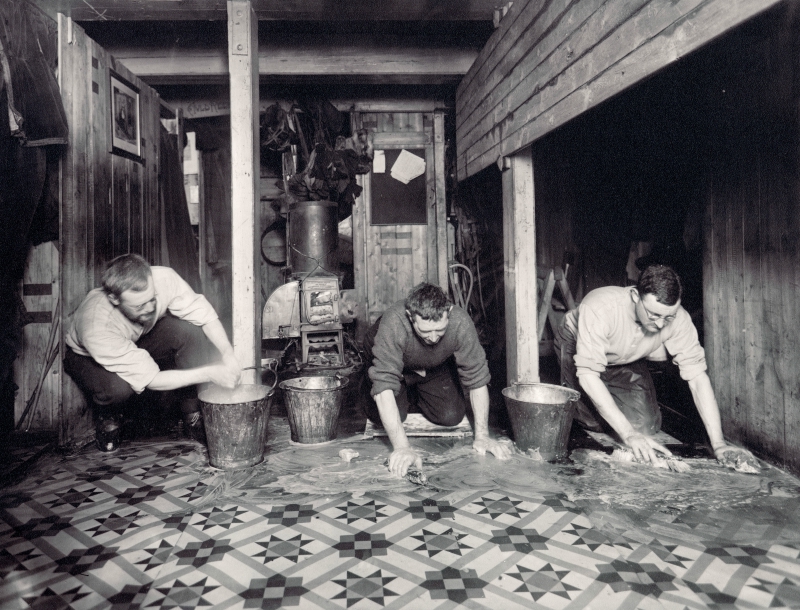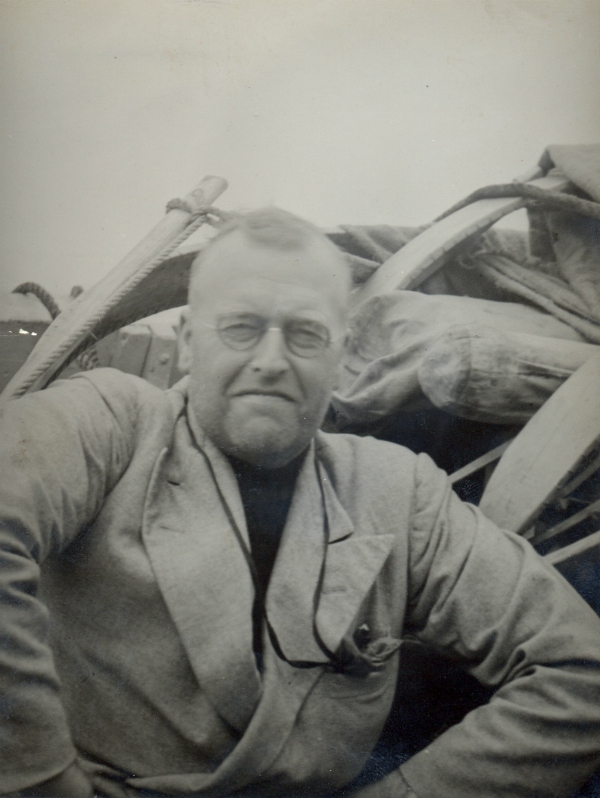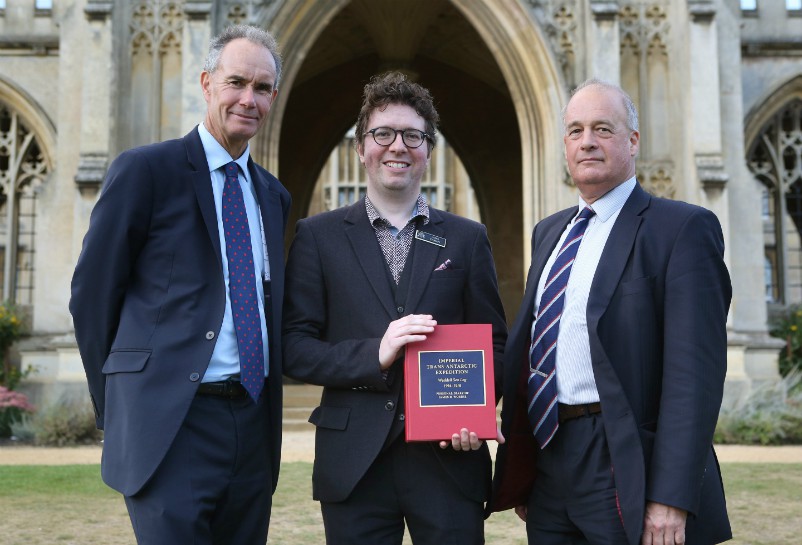Diary of polar scientist on ill-fated Shackleton voyage donated to St John’s
“We left the ship this evening: it still floats, but has been so badly damaged by the pressure of the last 24 hours that it will never float again once the ice opens."
When explorer Ernest Shackleton’s ship Endurance became trapped on ice in Antarctica and eventually sank in 1915, Sir James Mann Wordie was one of the crew that escaped in lifeboats to an uninhabited island.
Wordie, who was a student, Fellow and eventually Master at St John’s College, was recruited in 1914 as the geologist and chief of scientific staff for Shackleton’s Imperial Trans-Antarctic Expedition. The group of explorers used lifeboats to reach the inhospitable Elephant Island after they lived in makeshift camps on the ice after the ship became trapped.
In a feat of epic endurance, Wordie and 22 others survived four months of incredible hardship on the island while Shackleton rowed 800 miles to South Georgia to seek help. They were all recovered alive and returned to Britain in November 1916 to a country in the throes of war.

Now a rare copy of Wordie’s diary from the expedition has been presented to St John’s by Alan Wordie, the intrepid explorer’s grandson. The diary has been in the Wordie family since the expedition and includes ‘meticulous’ daily records of weather conditions, details of depths of ice and the continental shelf, calorific value of the food and other valuable scientific observations. His papers are credited with producing the main scientific results of the ill-fated voyage.
One extract, about the evacuation of the Endurance, reads: “We left the ship this evening: it still floats, but has been so badly damaged by the pressure of the last 24 hours that it will never float again once the ice opens. I am making this entry seated in a tent on the floe. The programme of the future is simple: to discard ALL unnecessary gear to sledge and boat westwards to the land.”

A digitised version of the diary is also set to be released this autumn to make Wordie’s transcripts available to scientists around the globe. It is hoped the historical data will help inform climate change researchers today. The funding of the digitisation was led by Tim Holmes, founder and managing director of Endurance Estates whose wife, Alice Holmes, is Wordie’s granddaughter.
Wordie came to St John’s to study geology in 1910, he became a Fellow in 1921 and served as Master from 1952 to 1959. He became a world renowned expert on polar explorations and influenced generations of explorers. He was one of the founding members of the Scott Polar Research Institute in Cambridge. The Wordie Ice Shelf – which ominously broke away from the Antarctic continent in 2009 owing to global warming – was one of several landmarks named in his honour. Sir James Wordie died in 1962.

Adam Crothers, special collections assistant at St John’s, said: “We are delighted to receive a copy of Sir James Wordie’s diary. In the Old Library at St John’s a copy of his diary will be in the company of a 1777 edition of James Cook’s A Voyage towards the South Pole, as well as Lady Margaret Beaufort’s prayer book, and the papers of such eminent Johnians as William Wordsworth, Cecil Beaton, Fred Hoyle and Douglas Adams.”
Alan Wordie said: “My grandfather kept meticulous daily records and we are pleased to create a book incorporating his writings from the time along with various illustrations and maps.
“My family and particularly my Aunt Elizabeth, his daughter, are pleased this will now be available to members of his former College. The digitisation project has been a mammoth effort of collating former scripts and photographs and we are delighted with the result: a splendid hardback version.”